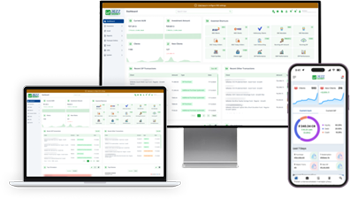Mutual funds have emerged as one of the most popular investment options in India, attracting millions of investors each year through SIPs, transparency, and their long-term wealth-creation potential. As investor participation grows, so does demand for qualified, trustworthy professionals who can guide individuals in selecting suitable schemes and managing financial risk. This has made a career as a mutual fund distributor in India a promising opportunity for those interested in finance and client advisory roles.
With rising financial literacy and increased awareness, investors now prefer professional guidance over informal advice. If you are interested in financial markets, have strong communication skills, and want to help others achieve their financial goals, learning to become a mutual fund distributor in India can open the door to a stable, respected, and recurring-income career.
This guide explains how to start a career as a mutual fund distributor in India, covering eligibility criteria, NISM Series V-A certification, AMFI ARN registration process, income potential, and practical tips for building a successful distribution practice.

